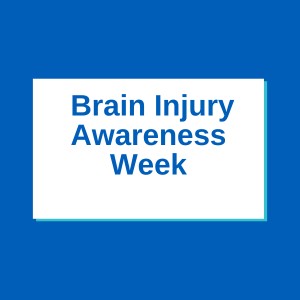
“People don’t realise that having a brain injury changes your life.”
Alan Croke’s life changed in September last year.
He was checking the load on the back of a lorry when he stepped off backwards and fell, landing on his head.
Alan, who lives in South Shields, suffered a fractured skull and a bleed on the brain.
“I knew I had fallen but I didn’t realise the damage I had done,” he explained. “I didn’t know if I had been unconscious or how long for.”
The accident happened on an abandoned industrial estate in Sunderland. Alan said if he hadn’t been conscious and was able to call for help, he might not be here today.
“I remember being awake. My head was pounding and I could see flashing lights,” he said.
“I really didn’t want to go to hospital and tried to get my son who came to my rescue to take me home. I’m of the mindset that if you break your leg in the morning, you get back to work in the afternoon.”
Alan was taken to Sunderland Royal Hospital where he stayed for two weeks.
After being discharged, he was referred to the Community Acquired Brain Injury Service (CABIS). Part of Cumbria, Northumberland, Tyne and Wear NHS Foundation Trust, CABIS provides specialist community rehab for people with acquired brain or head injuries living in Gateshead, Sunderland and South Tyneside. The service offers neurorehabilitation care, as well as emotional support and practical help.
Alan has physio every week and neuropsychology every other week at his home. He also has occupational therapy there too.
“I can’t emphasise enough how fantastic CABIS have been,” he said.
“The physio team have been working on sorting out my vestibular system, providing strength building exercises as well as getting me outside for a walk. I cannot walk very far at all before I get too tired and have to stop. The occupational therapy side of CABIS have helped me with hand eye coordination, such as using knives to chop vegetables. There has also been emotional support from day one.
“It all seems very simple because we take things for granted. We’re used to doing everyday tasks automatically. But after suffering a brain injury, you have to relearn the easiest of tasks all over again.
“Because it’s me I don’t see the improvements that have occurred since my accident, but everyone says there’s been a huge change from where I was in September to now.”
Since his accident, Alan has suffered from depression.
“I’ve been depressed because I feel isolated due to being housebound.” he said. “When everybody else goes to work, I’m in the house on my own for 10 hours a day. The days are long. It’s crushing.”
Alan attends Andy’s Man Club which offers peer-to-peer support, aiming to end the stigma surrounding men’s mental health.
He added: “This helps relieve the pressure. And importantly, it gets me out of the house even though it’s only for a few hours a week.”
Meeting others with similar experiences has also helped Alan.
“We might have all got a brain injury under different circumstances, but we feel the same in many ways. We’ve all said that your head doesn’t feel like your own anymore, it’s a really odd feeling. And we’re all hoping to get back to where we were before our injury occurred.
“I don’t think I’m the person I was before the injury and I don’t know if I’ll ever get back there. But with the help of CABIS, I’m pushing as hard as possible.”
Fatigue is something many people with brain injuries struggle with.
Alan describes the fatigue as overwhelming. “It’s not the same as just being tired after a day’s work or going out for the day. It is completely different. I have never experienced anything like it. The last six weeks in particular have been very difficult. You feel completely drained, physically and mentally. Just lifting a cup to drink from takes so much effort.
“I can iron sitting down but I can only do one thing before I get tired. I could chop a carrot and an onion at the table but would be exhausted for the rest of the day. These are the small things you take for granted, the things that are taken away from you.”
Alan believes there is still a lot of misunderstanding around brain injuries.
“It’s cliché but it’s true that not all disabilities are visible,” he said. “I can talk normally with clarity now as we’re discussing my injury. Then my brain just seems to shut down because it needs a rest. And I have to sit quietly and recover.
“Sometimes I can find myself being able to walk fairly normally with a stick for support and then two minutes later, I won’t be able to. Everything can change instantly. None of this happened before my accident.”
Alan isn’t sure what recovery looks like but is hopeful for the future.
“I had my accident in September and genuinely thought I’d be fine by Christmas. There is light at the end of the tunnel but it might take a bit longer to get there. It’s not like breaking your arm, recovery from a brain injury is indefinite.
“The service from CABIS has been invaluable. Without them, I don’t think I’d be here.”
